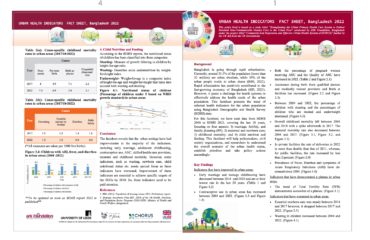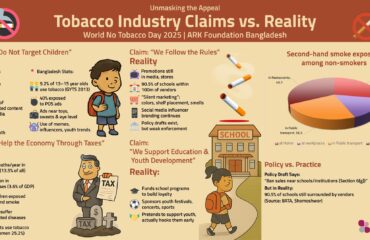
Background: People with severe mental illnesses (SMIs) are likely to face disproportionate challenges during a pandemic. They may not receive or be able to respond to public health messages to prevent infection or to limit its spread. Additionally, they may be more severely affected, particularly in low- and middle-income countries.
Methods: We conducted a telephone survey (May–June 2020) in a sample of 1,299 people with SMI who had attended national mental health institutes in Bangladesh and Pakistan before the pandemic. We collected information on top worries, socioeconomic impact of the pandemic, knowledge of COVID-19 (symptoms, prevention), and prevention-related practices (social distancing, hygiene). We explored the predictive value of socio-demographic and health-related variables for relative levels of COVID-19 knowledge and practice using regularized logistic regression models.
Findings: Mass media were the major source of information about COVID-19. Finances, employment, and physical health were the most frequently mentioned concerns. Overall, participants reported good knowledge and following advice. In Bangladesh, being female and higher levels of health-related quality of life (HRQoL) predicted poor and better knowledge, respectively, while in Pakistan being female predicted better knowledge. Receiving information from television predicted better knowledge in both countries. In Bangladesh, being female, accessing information from multiple media sources, and better HRQoL predicted better practice. In Pakistan, poorer knowledge of COVID-19 prevention measures predicted poorer practice.
Conclusion: Our paper adds to the literature on people living with SMIs and their knowledge and practices relevant to COVID-19 prevention. Our results emphasize the importance of access to mass and social media for the dissemination of advice and that the likely gendered uptake of both knowledge and practice requires further attention.



